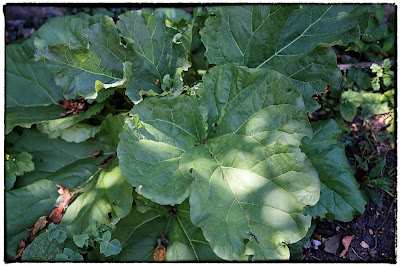Monday, August 10, 2015
Blooming marvellous - the Secret Garden in summer
Blackfly are always attracted to globe artichokes, although the problem is often very local with one plant affected and another quite free of them (see above). We’ve given our blackfly-infested plant on the left a good shower in washing-up water to get rid of them, using environmentally friendly soap, of course. A garlic infusion sprayed on the plants every few days as they mature can also act as a good preventative measure.
We only planted the rhubarb earlier this year, but it has already established well and this winter we’ll try forcing some of the stems for an early rhubarb treat in February or March. We chose a partially shaded site for the rhubarb, rather than placing it in full sun: it will tolerate some shade quite well.
Blackberries are forming after a brief and glorious display of blossom – we’ve never consciously planted blackberries, but they are persistent and vigorous intruders, and a welcome addition to the garden, so long as we keep them firmly in check.
One of the advantages of mixing edible plants with ornamentals as we do in the Secret Garden is some predators get confused. Grown in rows or block, these cavolo nero plants would be an easy target for pigeons which loves to eat the leaves and for cabbage white butterflies looking for brassicas to lay their eggs on. The pigeons haven’t found our cavolo nero yet, although we’ll continue to keep a sharp eye out for caterpillars.
Subscribe to:
Post Comments (Atom)





No comments:
Post a Comment